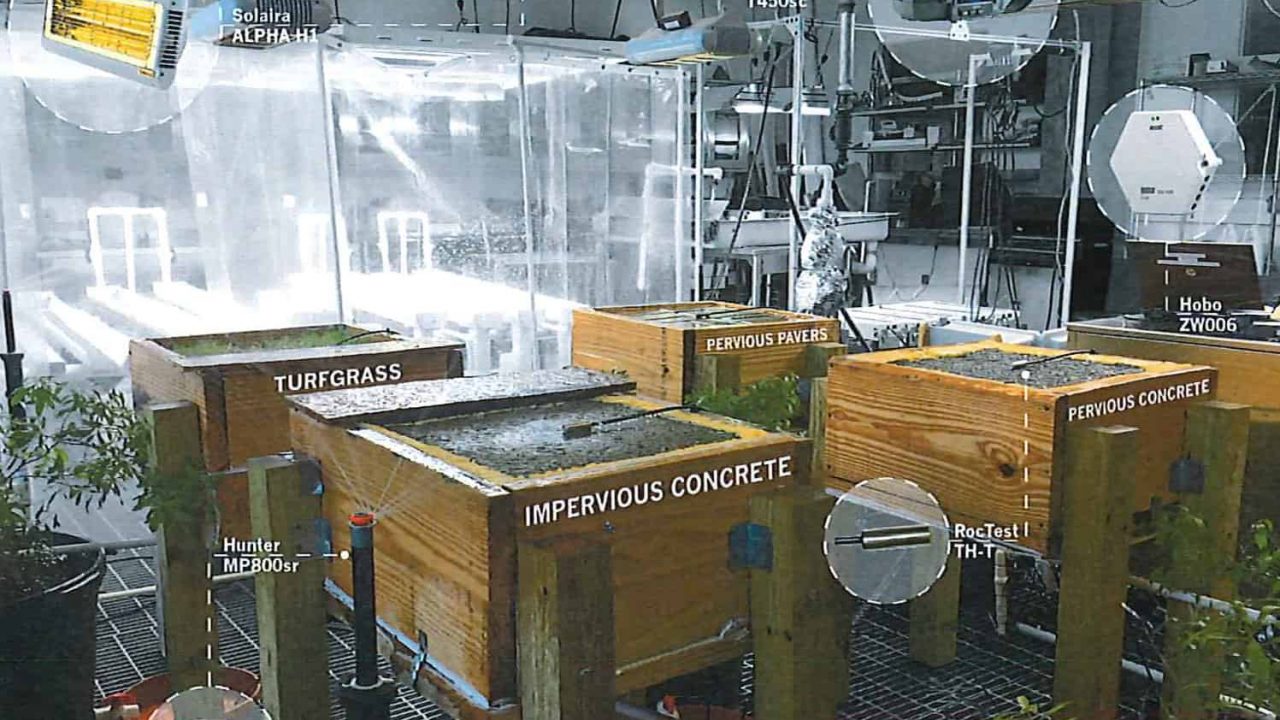Green Infrastructure Lab Receives Alabama ASLA Research Award

In a laboratory at the Auburn University Research Park, Associate Prof. of Landscape Architecture, Charlene LeBleu, Associate Prof. of Biosystems Engineering, Mark Dougherty, Amy Wright, an Associate Dean in the College of Agriculture, and Associate Prof. of Building Science, Keith Rahn have created the Green Infrastructure Lab to study the possibility that pervious pavement might have a role in mitigating thermal pollution encouraged by stormwater runoff. With the Green Infrastructure Lab, the group can examine the impact permeable paving can have on lowering the temperature of stormwater before it reaches its receiving waterbody through the creation and testing of different paving samples.
Thermal pollution caused by stormwater runoff can be as devastating to an aquatic ecosystem as other forms of pollution. Thermal pollution is created as stormwater moves across heated pavements; the heat is transferred into the runoff which is then directed elsewhere. In the case of Mobile, AL, the Lab’s main site of study, the thermally polluted stormwater finds itself emptying directly into the Mobile Bay Estuary. The estuary, a linchpin for Alabama’s seafood industry, provides a wide array of important services for many fish, crustaceans, and wildlife including nursery habitat for a period of their life cycles. In turn, the estuary not only caters to a wide array of ecological services but a myriad of economic services as well.
Paving sample testing was conducted under controlled conditions within the laboratory, and four stands of samples were produced. Attached, through temperature probes, to a datalogger that assisted with the collecting information for analyzing, the team used heat lamps and an irrigation system to replicate rain showers common to Mobile in order to study the efficacy of permeable paving in returning storm water runoff to the soil, and not to area waterbodies.
Ultimately, the research conducted at the Green Infrastructure Lab has the potential to establish the positive role pervious pavements have in mitigating the thermal pollution encouraged by stormwater runoff. As testing continues, the role of rain gardens and bioswales may be better understood in reducing stormwater temperatures when acting in conjunction with other low impact development strategies such as pervious pavement, greatly reducing the impact of thermal pollution and improving water conditions that affect wildlife and human well-being.
For these efforts, the Green Infrastructure Lab was recently recognized by the Alabama Chapter of the American Society of Landscape Architects Professional Award in Research in Communication for 2019. Congratulations to the entire team: Charlene LeBleu, Mark Dougherty, Keith Rahn, Amy Wright, Ryan Bowen, Rui Wang, Jeisson Andres Orjuela, Kaylee Britton and Britton Garrett.
See more in:
Faculty Accolades, Faculty Collaboration, Faculty Work, Research, Student Experience, Student Work
Related people:
Charlene LeBleu, Keith Rahn